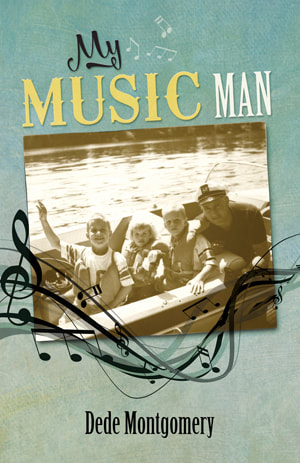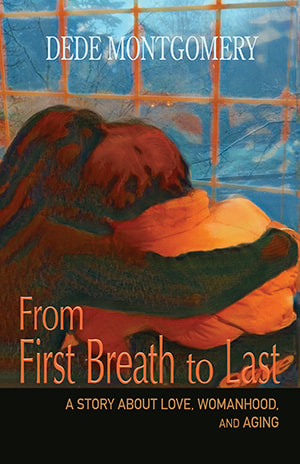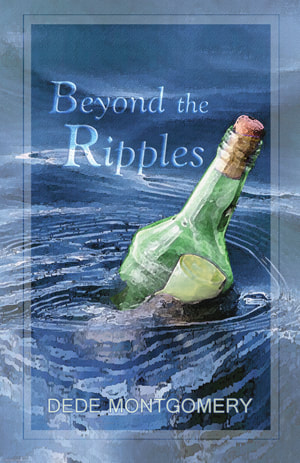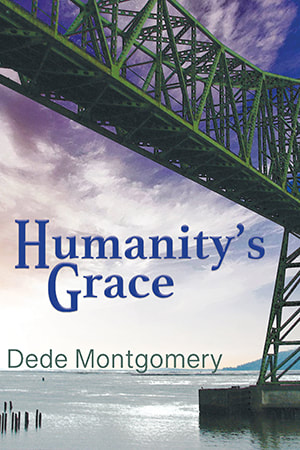Buy
DetailsBink Books
186 pp. ● 5.5 x 8.5 $13.95 (pb) ● $8.99 (eb) ISBN 978-1-945805-41-7 (pb) BIOGRAPHY & AUTOBIOGRAPHY / Personal Memoirs HISTORY / United States / State & Local / Pacific Northwest (OR, WA) Publication date: October 2017 |
|
As Dede Montgomery moves through grief to accept the death of her father, the stories in My Music Man shed light on change, acceptance, and forgiveness amid close personal relationships and Oregon’s natural landscapes.
The reader is catapulted into autumn on the Willamette’s riverbank in the 1960s with the author and her brothers, where they discover their father’s own childhood stories and the intimate relationship he shares with the land. Tales about generations of family weave between time periods, held together by the constancy of place and colored by memories of picking berries and filberts, traveling through the West Linn locks, and swimming in the river on a hot summer day. Montgomery describes small-town life in a school where everyone knows everybody, and how it felt to be an only girl in what often felt like a never-ending sea of boys. |
Visit
|
|
|
|
-
Praise
-
In the Media
-
Excerpt
-
For Reading Groups
<
>
"My Music Man is a story in the tradition of Carrie Young’s Nothing to Do but Stay, one of my all-time favorite books, a love song not to a river but to the prairie. We grow up much too fast. Before we know it, seemingly small decisions add up, shape our lives and become part of our past. All that’s left are the stories, and what wonderful stories they are!" — Birgitta Hjalmarson, author of Fylgia
"This book is a cross-stitch of family memories, historical anecdotes, and personal memoir, set in the Willamette Valley of Oregon. I loved hearing about early Oregon pioneers, their triumphs and trials, drives and disappointments. It's especially neat that these characters are mostly relations of the author and she has special source material in diaries and family lore!" — Margaret Pinard, Goodreads Review
"This book is a cross-stitch of family memories, historical anecdotes, and personal memoir, set in the Willamette Valley of Oregon. I loved hearing about early Oregon pioneers, their triumphs and trials, drives and disappointments. It's especially neat that these characters are mostly relations of the author and she has special source material in diaries and family lore!" — Margaret Pinard, Goodreads Review
“History Connection: Bringing history to life” – Nancy Dunis, Lake Oswego Review
Generations get special consideration,” by Keli Stevens, Lake Oswego Review
“Interview With Dede Montgomery,” by Siobhan Taylor, Executive Director, Willamette Falls State Heritage Area
“WL’s Dede Montgomery pens memoir on family’s Oregon roots,” by Patrick Malee, West Linn Tidings
Generations get special consideration,” by Keli Stevens, Lake Oswego Review
“Interview With Dede Montgomery,” by Siobhan Taylor, Executive Director, Willamette Falls State Heritage Area
“WL’s Dede Montgomery pens memoir on family’s Oregon roots,” by Patrick Malee, West Linn Tidings
Excerpt read by Dede Montgomery
Book Clubs & Reading Groups Discussion Guide
| My Music Man Reading Guide | |
| File Size: | 889 kb |
| File Type: | |
From the author
When my dad died I began to realize how much I would miss his story telling, the letters he wrote to us, and his knowledge of the Willamette and Columbia Rivers, and early Oregon. I began writing as a way to remember his stories, and in a way, to retrieve him. In doing it I realized the tremendous story just in our own relationship.
When my dad died I began to realize how much I would miss his story telling, the letters he wrote to us, and his knowledge of the Willamette and Columbia Rivers, and early Oregon. I began writing as a way to remember his stories, and in a way, to retrieve him. In doing it I realized the tremendous story just in our own relationship.
|
Discussion Questions
1. The author has chosen to build her plot around her personal experiences as a female, including early insights about gender bias and discrimination, and also include experiences of family females of other generations. Do you feel her own experience is common to many U.S. Women? Why or why not? Do you think this represents a specific generation of women? 2. The power of addiction, recovery and reconciliation is also a theme running through this book, particularly presented within the relationship of the narrator and her father. Initially the author didn’t intend to include this in the book. Why do you think she chose to add it, and do you think that was helpful to what the book became? 3. The author expresses regret at development of land with the alteration of the natural environment, and yet attempts to share her understanding of the reality of growth. How does this theme strike you as you read the book. Are you sympathetic? Have you had things in your own life that have made you feel similarly or not? 4. For many families, when parents die, the relationships between siblings may change. The author makes a leap in asserting that the power of story helped keep her sibling group together following the death of her dad. Do you buy this? What have you noticed in your own life? 5. The author was challenged to weave multiple generations of stories into her book, including those of her children. Do you think she was effective in doing this? Did you feel that the transitions between time periods was easy to follow or not? 6. How did this book make you feel about Oregon and its beginnings as related to class, privilege and race? Did you learn anything new? Do you think the author romanticizes early Oregon due to her family roots? 7. Do you know much about your family history? How has it affected your you as you move through life? Did this book inspire you to think about something in your own life differently, or take an action on something? |
Other Books by Dede Montgomery
Books & Imprints |
Information |
Contact |
Proudly powered by Weebly





